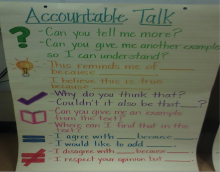The Nashville Civil Rights Movement

Length: Two 55-minute class periods.
To commemorate Nashville's role in the historic Civil Rights Movement, the Metro Arts Commission approved the selection of artist Walter Hood to create new public art. His design for Witness Walls utilizes iconic photos of the Civil Rights movement in Nashville to honor the events and the people who created the blueprint for nonviolent protest. The installation will be located on the west side of the historic Metro Nashville Courthouse, steps away from the historic April 19, 1960 student-led protest.
In this English Language Arts lesson, students will:
- as a whole group, read and discuss the article, “Area Students Lead the Way.” Teacher will model how to pull and cite textual evidence to support claims.
- review the YouTube video of Walter Hood’s Witness Wall project in Nashville.
- be assigned a prominent member of Nashville’s Civil Rights Movement to research.
- create a timeline of events for their assigned civil rights movement member.
- select a prominent quote to epitomize their character’s involvement in the Civil Rights Movement.
- select a photograph to copy or sketch.
Weblink address (URL):
Originator:
eduToolbox® is a resource-sharing portal developed by the Ayers Institute for Learning & Innovation with collaborative support and funding from the Tennessee Department of Education and the U.S. Department of Education's Math & Science Partnership program.



